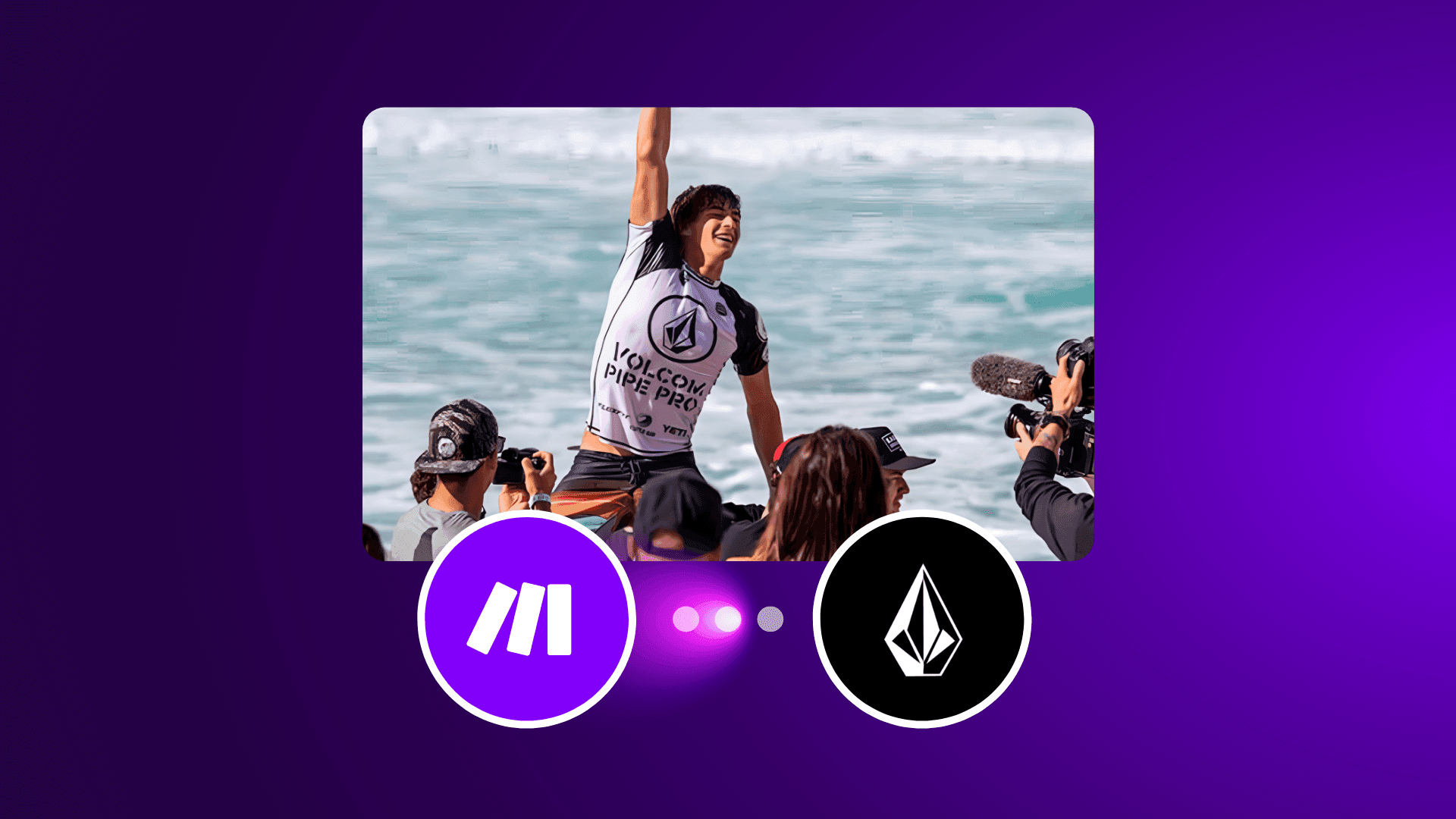Jun 27, 2024 | 5 minutes
How boardsports brand Volcom makes ecommerce flow

Surfing embodies a deep sense of freedom. When you harness the power of the sea, the waves propel you forward - momentum becomes effortless, automatic.
That's the same feeling that Alexandre Pouey enjoys behind the computer screen.
As digital project manager for Volcom, a boardsports brand, Pouey is responsible for making the company's clothing available for sale via ecommerce to sports enthusiasts around the world.
Based in beautiful Biarritz on France's southwest coast, Pouey and Volcom are working from one of Europe's primary surfing destinations, nestled in the bay of Biscay, home to notoriously high waves.
A hobbyist surfer himself, Pouey has found a way to ensure the task of managing a worldwide network of nine ecommerce stores and marketplaces for four brands flows just like the nearby Atlantic currents.
Growth potential
Founded in 1991, Volcom, which also offers snowboarding and skatewear, is part of the Liberated Brands group that also operates Billabong and Quiksilver, among other brands.
Joining in 2013, Pouey took on responsibility for Volcom's European direct-to-consumer (D2C) ecommerce stores, powered by Magento. Since then, Volcom, with its famous stone logo, has gone on to operate nine (D2C) stores, powered by Shopify Plus.
The pain of processes
But Pouey had a problem. Volcom doesn't only sell through its own platform — its clothes, from board shorts to wetsuits, are also sold through a wide array of retail partners around the world.
Now, consider that Volcom has thousands of stock-keeping units (SKUs), or individual products. Managing the listings for each of them across each storefront was a headache.
Volcom turned to Quable, a software vendor offering a Product Information Management (PIM) solution for centrally managing product details and a Digital Asset Management (DAM) tool for uploading photos and videos.
That would be fine if Pouey only had to maintain a D2C strategy. But Volcom also needed to distribute those product listings across a comprehensive network around the world.
Suddenly, thousands of SKUs had multiplied into tens of thousands when Volcom needed to update prices to reflect seasonal offers, for example, the pain became unmanageable. It felt like, well, a wipeout.
Sync or swim
That's when Pouey and Volcom discovered Make's platform for connecting apps and automating workflows.
Product data expert Fabrice Pierre of IT consulting firm Numendo introduced the fashion brand to the platform, believing it could be the answer to Pouey's prayers.
"We needed to extract data from the PIM to other channels," Pouey says. "We were looking for a solution. We had looked at a few Extract, Transform and Load tools (ETLs).
"We saw Make and we wanted to study the feasibility to carry out these tasks and also to automate a number of internal tasks which take up a lot of resources for the whole team."
Together, teams from the three groups — Volcom, Make and Numendo — began a collaborative proof-of-concept phase.
"The idea was to take a practical case, a slightly complicated scenario in which there was real added value," Pouey adds.
Automating an ecommerce empire
The team didn't stop there.
"We used Make to create a scenario that would tag assets in Box," says Pouey. "This tagging allows us to filter these assets to deliver bulk assets to B2B clients.”
"We automated existing manual tasks. For example, we set up a promotions plan based on the different product sell-out statistics to calculate the new prices for the promotions. And we updated them directly to Shopify automatically."
Working initially on Volcom's French operations, they successfully used Make's Quable PIM integration to synchronize data across multiple ecommerce stores.
"The team was able to confirm that Make was a tool that would allow us to exploit the PIM in extraction and deliver the different channels at a good and easy pace," Pouey explains. "Then we decided that Make was a tool that would facilitate the work of the whole team."
Proving the value
Detail-oriented Pouey needed convincing that Make was the right wave for Volcom to catch.
But close-quarters work with teams from both Numendo and Make gave him the confidence and capability to move forward, prompting Volcom to become an enterprise customer.
"Fabrice was able to solve a number of problems with the Make and Quable teams," he recalls. "They worked to solve connection issues, API issues, requests, etcetera.
"We carried out workshops over several weeks, working on this scenario until I was able to acquire enough autonomy to finalize it and generate other scenarios."
Ride with the tide
Make has now been adopted by three more people on Pouey's team and the platform is gaining wide-ranging uses across Volcom's ecommerce operation. Use of the toolhas extended from Volcom's Europe offices to across the company's global retail footprint.
"When I attend meetings, the idea of automating via Make is already in everyone's minds," Pouey explains.
The company currently runs more than 90 automations and more than a million scenario operations per year, representing significant automation maturity.
Like the best waves, Pouey says the scale of the efficiency being realized by Volcom is difficult to quantify.
But soothing the pain of manual data movement and super-charging the digital dissemination of product data helps put Volcom in a good position to capitalize on a market that is forecast by 2030 to be worth more than $14.1 billion globally, for just surf apparel alone.
Still, that's in the future. For now, Volcom and Alexandre Pouey are happy to go with the flow.



